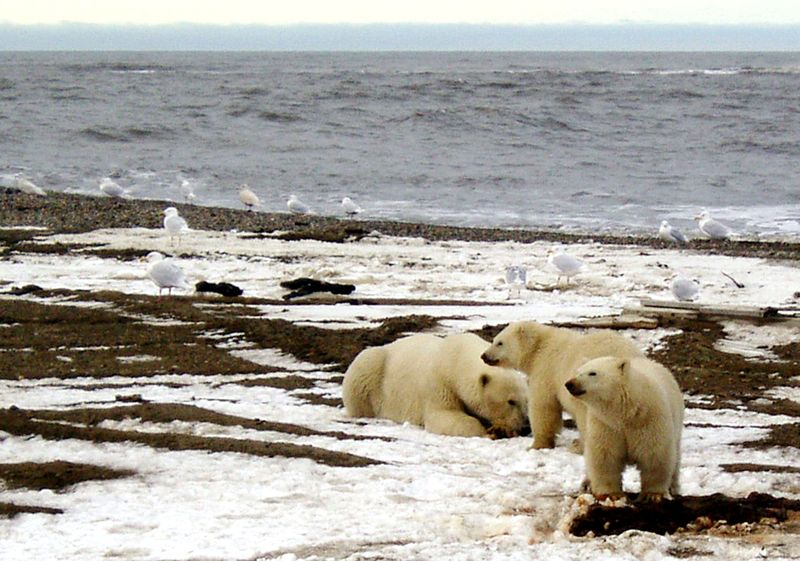ANCHORAGE, Alaska (Reuters) -U.S. President Donald Trump’s administration announced on Monday that it has made final its plan to open up vast areas of once-protected Arctic Alaska territory to oil development.
The decision, which will open up more land in the western North Slope, is one of a number of pro-drilling actions taken by the Trump administration in its final days. It comes just before a scheduled auction of drilling rights in the Arctic National Wildlife Refuge (ANWR) on the eastern North Slope on Wednesday.
The U.S. Bureau of Land Management released its plan for the National Petroleum Reserve in Alaska (NPR-A), a 23 million-acre (9.3 million-hectare) swath of land on the western North Slope. The plan, signed by Interior Secretary David Bernhardt on Dec. 21, allows lease sales to proceed under relaxed standards. The NPR-A is Alaska’s primary locale for the state’s daily oil production, which averaged 466,000 barrels per day in 2019, according to U.S. Energy Department data.
The plan allows oil development on about 80 percent of the reserve. Under Obama-era rules, about half of the reserve was available for leasing, with the other half protected for environmental and indigenous people reasons.
It is unclear whether making this acreage available will boost Alaskan oil production, which peaked more than 30 years ago at 2 million barrels per day. Legislation passed in 2017 opened up the ANWR, which borders Canada, for oil leases.
The Trump plan allows leasing in vast Teshekpuk Lake, the largest lake in Arctic Alaska and a haven for migrating birds and wildlife. Teshekpuk Lake has been off-limits to leasing since the Reagan administration.
“We are expanding access to our nation’s great energy potential and providing for economic opportunities and job creation for both Alaska Natives and our nation,” said Casey Hammond, principal deputy secretary for the Department of the Interior.
The NPR-A decision got a swift response from environmentalists, who have already sued to overturn the plan.
“This flawed management plan will create more conflict and a less-stable business environment for companies operating in the region,” David Krause, assistant Alaska director for The Wilderness Society, said in a statement.
(Reporting By Yereth Rosen in Anchorage, Alaska; Editing by David Gaffen and Jonathan Oatis)

























